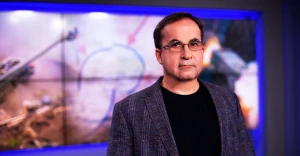
New European Parliament: Far-right triumph could still happen
These days, many compare Europe's recent election results with those from 2019
The Ukrainian reader often doesn't grasp the nuances between Western political groups, leading to headlines like "right-wing populists gain ground" causing confusion.
Has the mood of the European voter shifted? If so, why? How significant is this change? What sparked it?
Did the right-wing populists triumph? No. Why not? After all, Macron conceded to Le Pen, a right-wing populist.
- Because while France's vote looked impactful domestically, it didn't significantly alter the future European Parliament's balance.
- Le Pen, once openly pro-Russian, now takes a more cautious stance due to current events, declaring that the French must "show respect to the Ukrainian nation." She's appealing to a more moderate right-wing voter who isn't keen on pro-Russian sentiments. Le Pen is part of the ID group ("Identity and Democracy"), from which the German AfD ("Alternative for Germany") was excluded.
- Le Pen seeks unity with Giorgia Meloni, who represents the ECR group ("European Conservatives and Reformists").
Notice how the radical right's intensity is already more subdued? In Spain, the center-right People's Party got 34%, the Social Democrats 30%, and the right-wing populists only 9.6%.
Meloni in Italy is leading with 28%, which, by Italian standards, makes it hard to label her party, "Brothers of Italy," as far-right. The Social Democrats come second with 25%. The true right-wing populists are the "Five Star Movement" at 9.7% and the pro-Russian "Lega" at 8.8%. This hardly seems like a "far-right triumph."
In Germany, the CDU/CSU received 30% of the votes. They oppose the Scholz government, are moderate right-wingers, support giving Ukraine "Taurus" missiles, and criticize the Social Democrat chancellor. The right-wing populists, AfD, won 15.9%, falling short due to a series of scandals. The Social Democratic Party of Scholz came third.
Combining all those to the right of the European People's Party (EPP) still doesn't give a majority in the European Parliament. Instead, the "populists" (186 votes) could likely find common ground with the Social Democrats (134) and liberals (79), totaling more than the 361 seats needed for a majority.
Has the political landscape in Europe changed? Yes, the attention to right-wing rhetoric has increased. This doesn't yet indicate a desire to entrust the far-right with solving Europe's long-standing problems, but it does acknowledge that the issues they raise are real and need addressing.
Whether you like it or not, these problems should be solved not by the right-wing populists, who will remain vocal opposition, but by the government — the EPP and its partners. It would be beneficial to include conservatives in this process as well.
The fact that Ursula von der Leyen invited Giorgia Meloni to join the collaboration is promising. Technologically, this could prevent Meloni and Le Pen from aligning (Meloni still shows more "consciousness" than Le Pen). Ideologically, it could push Europe to address chronic issues that the left, centrists, and right have long ignored or just talked about.
First up is the migrant problem. If the new right pushes this topic, it will just be pointless chatter, similar to Russian propaganda and manipulation. If the moderate right (EPP) supports Meloni's conservatives, it will show unity, awareness, and pragmatism. Plus, European citizens clearly want this problem solved.
Surprisingly, the elections showed that the values the European Union was built on are still relevant. These are summed up by "Christian democracy" and "conservatism."
The EPP is center-right, meaning moderate conservatives. CDU/CSU, as Christian Democrats, are also moderate conservatives. Addressing the issues highlighted by national conservatives at the European Parliament level will be a blow to the new right, on whom Moscow heavily relies.
But if the conservative stance is ignored and the EPP continues to overlook problems for the sake of unity with social democrats and liberals (+ "greens"), then European identity themes and the rights, freedoms, and responsibilities inherited from the Renaissance and Enlightenment will be overshadowed by the new right's populism. This could lead to far-right dominance in the next elections.
About the author. Vitaliy Haidukevych, journalist
The editors do not always share the opinions expressed by the blog authors.
- News











































